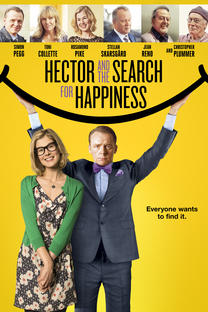How to Actually “Find” Happiness?
Have you ever wondered why you cannot feel happy when you want to? It just seems that the more you are trying to experience happiness in your life, the more unhappiness you attract, right?
Well, according to Henry David Thoreau, the famous American Transcendentalist author, “Happiness is like a butterfly: the more you chase it, the more it will elude you, but if you turn your attention to other things, it will come and sit softly on your shoulder…”
The quote above might sound very confusing at first because it is. Happiness comes from losing yourself into the present moment. It can comes from enjoying your favorite types of food, feeling that you are appreciated for a good deed that you have done, having meaningful conversations with good friends, re-reading your favorite books, etc.
What makes you happy? Do you think it’s hard to feel happiness? Share with us!
Read the article below to learn what science has discovered about the art of happiness?
In a series of new studies led by the psychologist Iris Mauss, the more value people placed on happiness, the less happy they became. I saw it happen to Tom, a savant who speaks half a dozen languages, from Chinese to Welsh. In college, Tom declared a major in computer science, but found it dissatisfying. He became obsessed with happiness, longing for a career and a culture that would provide the perfect match for his interests and values. Within two years of graduating from college, he had bounced from working at the United Nations to an Internet startup in New York, applied for jobs as a supermarket manager, consultant and venture capitalist, and considered moving to Puerto Rico, Trinidad, Colombia, or Canada.
These careers and countries didn’t fulfill him. After another year, he was doing standup comedy, contemplating a move to London to pursue an advanced degree in education, philosophy of science, management, or psychology. But none of these paths made him happy. Dissatisfied with his own lack of progress toward happiness, he created an online tool to help people develop more productive habits. That wasn’t satisfying either, so he moved to Beijing. He lasted two years there, but didn’t find the right cultural fit, so he moved to Germany and considered starting a college dorm for adults and a bar for nerds. In the next two years, he was off to Montreal and Pittsburgh, then back to Germany working on a website to help couples spend more quality time together. Still not happy, he abandoned that plan and returned to Beijing to sell office furniture. One year and two more moves across two continents later, he admitted to his friends, “I’m harder to find than Carmen San Diego.”
Tom made four mistakes that are all too common on the road to happiness. The first blunder was in trying to figure out if he was happy. When we pursue happiness, our goal is to experience more joy and contentment. To find out if we’re making progress, we need to compare our past happiness to our current happiness. This creates a problem: the moment we make that comparison, we shift from an experiencing mode to an evaluating mode. Consider several decades of research by the psychologist Mihaly Csikszentmihalyi on flow, a state of complete absorption in an activity. Think of being engrossed in a Harry Potter book, playing a sport you love, or catching up with a good friend you haven’t seen in years. You’re in the zone: you’re so immersed in the task that you lose track of time and the outside world.
4 Secrets to Finding (Rather than Losing) Happiness
1) By looking everywhere for happiness, Tom disrupted his ability to find flow.
Csikszentmihalyi finds that when people are in a flow state, they don’t report being happy, as they’re too busy concentrating on the activity or conversation. But afterward, looking back, they describe flow as the optimal emotional experience. By looking everywhere for happiness, Tom disrupted his ability to find flow. He was so busy assessing each new job and country that he never fully engaged in his projects and relationships. Instead, he became depressed and entered a vicious cycle documented by psychologists Katariina Salmela-Aro and Jari-Erik Nurmi: depression leads people to evaluate their daily projects as less enjoyable, and ruminating about why they’re not fun makes the depression worse.
2) The second error was in overestimating the impact of life circumstances on happiness.
As psychologist Dan Gilbert explains in Stumbling on Happiness, we tend to overestimate the emotional impact of positive life events. We think a great roommate or a major promotion will make us happier, overlooking the fact that we’ll adapt to the new circumstances. For example, in a classic study, winning the lottery didn’t appear to yield lasting gains in happiness. Each time Tom moved to a new job and country, he was initially excited to be running on a new treadmill, but within a matter of months, the reality of the daily grind set in: he was still running on a treadmill.

